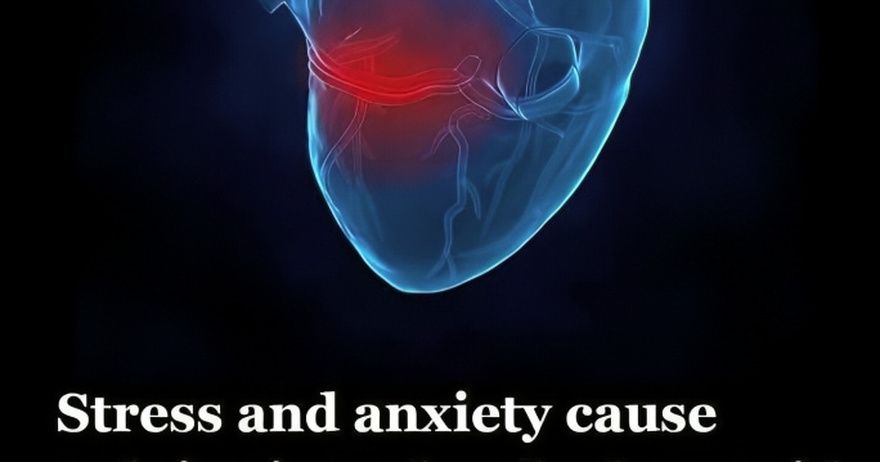In today’s fast-paced world, stress has become an unavoidable part of our lives. Whether it’s due to work pressures, relationship issues, or financial struggles, stress can take a toll on our mental and physical well-being. One hormone that plays a crucial role in our stress response is cortisol. Understanding what cortisol is and how it affects our bodies is essential in recognizing the signs of high stress and taking steps to manage it effectively. Let’s find out what cortisol is, the difference between acute stress and chronic stress, and identify eight common symptoms of high cortisol levels. From there, we can better understand how to lower cortisol levels and stress.
What is Cortisol?
Cortisol is a hormone that is produced by the adrenal glands, which are located on top of our kidneys. It is often referred to as the “stress hormone” as it is released in response to stress. Cortisol helps regulate a variety of bodily functions, including metabolism, blood pressure, and immune response. In short bursts, cortisol can be beneficial and help us deal with immediate stressful situations. However, when cortisol levels remain elevated for extended periods, it can have detrimental effects on our health.
Acute Stress vs. Chronic Stress
Acute stress is the body’s natural and immediate reaction to a perceived threat or challenge. It is a short-term stress response that occurs when we encounter a stressful situation, such as preparing for an important presentation or narrowly avoiding a car accident. During acute stress, cortisol levels rise temporarily to help us handle the immediate demands of the situation. (2)
Chronic stress, on the other hand, is a prolonged state of stress that persists over an extended period. It often stems from ongoing issues like financial problems, relationship difficulties, or job-related stress. Chronic stress leads to consistently high cortisol levels, which can have severe consequences on our physical and mental health. (3)
8 Signs of High Cortisol Symptoms
Of course, many of us “feel stressed” frequently. We have a looming deadline at work, our child is struggling at school, or simply we are juggling too many things at once. Signs of high cortisol, however, go beyond feeling stressed. Even if you are feeling relaxed (however temporary) your body could still be under stress, aka high levels of stress hormones. These are some of the signs to look out for to know whether or not you are in a state of chronic stress. (4)
1. Weight Gain

High cortisol levels can contribute to weight gain, particularly around the abdominal area. This occurs because cortisol stimulates the breakdown of muscle, while at the same time promoting the storage of fat. If you are eating well and exercising regularly to no avail, high cortisol might have something to do with it.
2. Insomnia and Sleep Disorders

Chronically elevated cortisol levels can disrupt our sleep patterns, making it difficult to fall asleep or stay asleep throughout the night. This sleep disturbance can lead to daytime fatigue and reduced cognitive function.
3. Weakened Immune System

Prolonged exposure to cortisol suppresses the immune system, making us more susceptible to infections, viruses, and other illnesses. If you find that you are constantly getting sick, your cortisol may be high.
4. Anxiety and Depression

High cortisol levels can lead to increased anxiety and feelings of depression. Cortisol interacts with brain chemicals, such as serotonin and dopamine, which are responsible for regulating moods. As always, if you are struggling with anxiety and/or depression, seek professional help. These are not problems that you need to or should deal with on your own.
5. Digestive Problems

Cortisol can interfere with the normal functioning of the digestive system. This can lead to issues like indigestion, bloating, and irritable bowel syndrome. If you notice changes in your bowel habits or other digestive issues, speak to your doctor. High cortisol could be at play.
6. Low Libido

Chronically high cortisol levels can reduce sexual desire and disrupt normal hormone levels. This negatively affects intimacy and overall sexual well-being. In turn, this can lead to problems in your relationship, which continues the cycle of chronic stress.
7. Memory and Concentration Issues

Elevated cortisol levels can impair memory, concentration, and cognitive function. This can make it difficult to focus on tasks, remember things, and contribute to a decrease in overall productivity. Just as with low libido, this can get you stuck in a stress cycle of being unable to focus, therefore lowering your productivity, which then makes you feel stressed. From here the cycle just keeps going around.
8. Muscle Weakness

Cortisol breaks down muscle tissue, which can lead to muscle weakness and decreased muscle mass over time. This can impact physical performance and lead to a decreased ability to engage in regular exercise. It can also lead to frustration due to lack of results, no matter how hard you try in the gym.





























